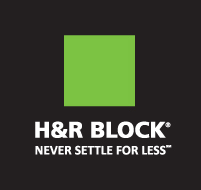What Parents Need to Know for Filing Their Taxes
The IRS calls your little bundle of joy a dependent, and with good reason. Even before that baby arrives, you should be aware of how Uncle Sam will be her uncle as well. There will be some nice tax benefits in the years to come. Before that can happen, your new baby will need to have a Social Security number assigned. The good news is that most hospitals have the paperwork all ready for you, and a few days after you bring baby home, their social security card will arrive. Don’t worry, you’re not already planning for their retirement; you need this number to enter on your tax return, to claim your new dependent.
For 2012, an exemption is a deduction from your income of $3,800; if you are married and filing a joint return, you are entitled to an exemption for you, your spouse, and each of your children. The impact on your tax bill will depend on your marginal rate of course, but whatever the rate, your goal is to reduce that taxable income as best you can.
If you are a single parent that pays over half of your household expenses, having a child will allow you to file with the status “head of household” which results in an increase to your standard deduction to $8,700 from the regular single rate of $5,950.
The Child Tax Credit
The Child Tax Credit is a credit against your taxes (a dollar for dollar reduction of tax due, as compared to reducing taxable income) of as much as $1,000. To qualify for this credit, your child must be 16 or younger by the end of 2012, your legal dependent, and with few exceptions, must have lived with you more than half the year. This credit phases out for Modified Adjusted Gross Incomes above $75,000 for single filers or $110,000 for married filers filing a joint return. This credit was due to drop to $500, but was extended at the present $1,000 for five more years under the recently passed American Taxpayer Relief Act of 2012.
The Child Care Tax Credit
The Child Care Tax Credit is another credit you may qualify for. This credit is available for expenses of caring for your child who is under 13 to enable you to work or actively look for work. The credit itself ranges from 20-35% of your covered expenses, and depending on your tax rate, may not be as good a benefit to you as the Dependent Care Assistance Program.
The total expenses qualifying for the credit are capped at $3,000 (for one qualifying individual) or at $6,000 (for two or more qualifying individuals). The dollar limits may differ depending on the tax year in question.
The Dependent Care Assistance Program
The Dependent Care Assistance Program (DCAP) is an employer sponsored plan (meaning your company may not offer it) which allows a couple to withhold up to $5,000 pretax to be used for child care expenses during the year. This benefit has a “use it or lose it” provision, so you should plan ahead to accurately estimate your expenses. Similar to the Child Care Credit, this account applies to your dependent child under 13 for expenses to take care of them while you are working. Your employer’s benefits department will be able to provide a detailed list of the exact expenses that are covered. For full time day care, it’s easy to spend $5,000 a year.
The Flexible Spending Account
The Flexible Spending Account is a similar account to the DCAP above, the difference being that it’s used for non-reimbursed medical expenses. These include doctor co-pays, prescription costs, dental expenses, and a number of other eligible items. The limit in 2012 was $5,000 per family, and is reduced to $2,500 per family in 2013. Check with your benefit department to get the complete list of items covered. It’s important to note any remaining balance not spent by the end of the year, plus extension, if available, is lost. If you are new to the FSA, track your expenses this year, and consider signing up for 2014.
The Earned Income Credit
Last, the Earned Income Credit is another credit available to those parents with income up to $36,920 (single) or $42,130 (married filing joint). In 2012 the credit is worth $475 if you have no children and up to $5,891 if you have three or more children.
As you can see, your new bundle of joy comes with their own list of benefits on your tax return. The list may seem a bit intimidating, but your H&R Block At Home software or Tax Pro will be sure to use the credits and allowable deductions to minimize that tax bill.
The H & R Block office in Benton is open for business and ready to help — and if you bring a sack of groceries for the food pantry, we will deduct $20 from your tax preparation bill. We also honor our competitor’s coupons. Call us at 618-439-4641 to book your appointment. We are located at 101 West Main Street in Benton and are anxious to serve you! Our office hours are 9 am to 6 pm Monday through Friday, and 9 am to 5 pm on Saturday.



Speak Your Mind
You must be logged in to post a comment.